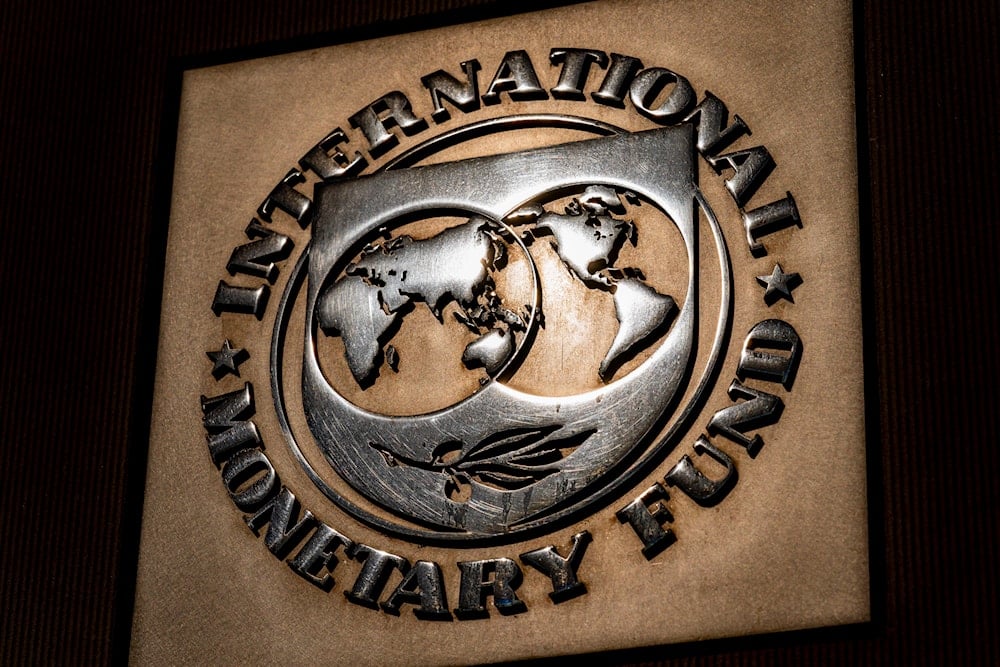Russian IMF director quits, says institution now too 'politicized'
Russia’s permanent representative to the IMF resigns after 30 years, accusing the institution of becoming "extremely" politicized and "rude" toward Russia.
-

The logo of the International Monetary Fund is visible on their building, on April 5, 2021, in Washington. (AP)
The International Monetary Fund’s executive director for Russia has resigned after nearly 30 years, citing disrespect and insults aimed at his country and its leadership.
Aleksey Mozhin, who has served as Russia’s permanent representative to the IMF since the 1990s, became the dean of its executive board in 2014, recognizing him as the longest-serving member.
In an interview with RIA Novosti on Friday, he stated that the Washington-based institution had become "extremely" politicized in recent years due to pressure from its major shareholders, particularly the United States.
He faced escalating disrespect and insults directed at his country and President Vladimir Putin during board meetings, he said.
“They are rude to me... they insult my country, the leader of my country. I have to snap back, but it’s all deeply disgusting,” Mozhin said, explaining his decision to resign from the IMF.
Suspended in 2022
Following the escalation of the Ukraine conflict in 2022, the IMF suspended Mozhin’s position as dean of the board, citing Russia’s involvement in the crisis and its "potential impact on the ability of the executive director for Russia to perform this role effectively."
Commenting on his resignation, Mozhin told RIA Novosti that the fund is now “in the worst shape it has been in over 30 years” due to its politicization.
Currently, the IMF executive board consists of 24 members, elected by individual member countries or groups of countries. The distribution of votes is partially based on each nation’s share of the funding it contributes.
Following his resignation, Ksenia Yudaeva, the former first deputy governor of Russia’s central bank and current advisor to Governor Elvira Nabiullina, took over Mozhin's position. Her candidacy was proposed by Russia’s Finance Ministry in September and received government support. In turn, Mozhin will now replace Yudaeva as an advisor to the head of the Bank of Russia.
Following the onset of the war in Ukraine, Russia faced significant pressure from Western-aligned organizations that imposed sanctions and sought to isolate the country globally. However, this pressure, including the sanctions, has started to backfire.
In April, Alfred Kammer, the director of the IMF European Department, emphasized the importance of ensuring legal justification for any actions aimed at seizing Russia's frozen assets to prevent potentially undermining the global financial system.
After the EU and other G7 nations collectively froze around $300 billion in assets belonging to the Russian central bank, approximately €196.6 billion of these assets were held by the Belgium-based clearinghouse Euroclear. What is significant is that over the past year, these funds have accrued nearly €4.4 billion in interest.
"With regard to the seizure of Russia’s assets … our view is that is something for the relevant jurisdictions and courts to determine and to decide," Kammer told a press briefing on April 20, adding, "From our side, what is important is that whatever action is taken, that the implications of the functioning of the international monetary system are being taken into account."
Kammer, reiterating the IMF’s previous statements on the issue, recalled IMF managing director Kristalina Georgieva’s words, that "one needs to be wary of unintended consequences" of such actions.

 3 Min Read
3 Min Read









